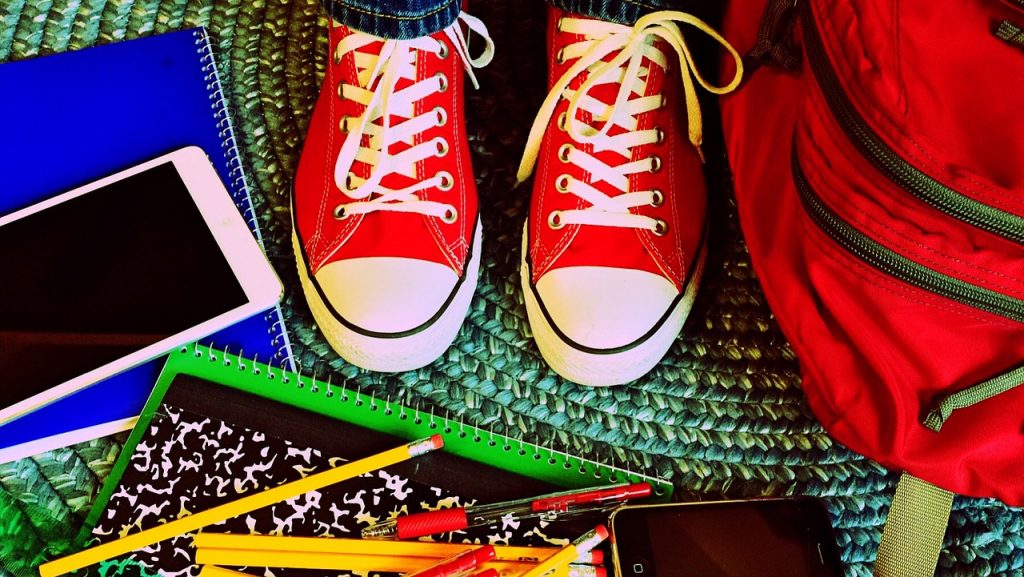
How do we get our children pumped for a new school year? If the excitement doesn’t come naturally (or, even if it does), there is plenty parents and teachers can do to help autistic students better prepare for a return to school at the start of a new year and also maintain a healthy schedule and routine throughout the year. This article summarizes some ideas about autism and education as summarized by actually autistic individuals. If we give them the proper tools to begin a new routine and navigate a new schedule and environment, our messages of positivity, hopefulness, and excitement about the future are more likely to be embraced by our children.
How Well Do Educators Understand Autism?
James Sinclair, autistic blogger at Autistic and Unapologetic has written about the less than adequate support he received in school. He described all of the supports he received as “overly complicated,” making his education “tough” and leaving him with “little time to enjoy my experience.”
One primary factor impacting an autistic person’s educational experience is often the teacher’s understanding of autism. Sinclair reminds his readers that autism is not necessarily accompanied by a learning disability, and it can even sometimes carry learning advantages. He cites explains that parents believe that ‘having a teacher that understood what autism was,’ would mean that their children would be much happier in education. But he disagrees. Based on his personal experience, he found it much easier to work with teachers who had no idea of what autism was. This way he could explain his needs in the way he wanted, and he didn’t have to combat any stereotypes entrenched in the school culture.
It’s a difficult thing now to find someone completely free of any preconceived notions about autism though. It’s important to stress communication of your child’s needs as an individual and teach them ways to self advocate as soon as it’s appropriate. Sinclair explains, “A generalised understanding of autism was what led people to assume that my grammar and spelling was the reason for me not achieving my full potential. It was only when I met someone blissfully unaware of the intricacies of autism that things got better.” He explains that a basic understanding of autism may help, but “it is a waste of time, effort and money to help all autistic people by the same means. Instead, we need to start supporting each and every individual autistic person, as though they are just that: ‘individual’.”
Ways to Prepare Your Autistic Child for A Transition Back to School
Preparation is important to setting any kid up for success at school. For autistic students, any time spent helping them acclimate to a new environment and new schedule with new people will certainly help. Below are some simple steps to success at the start of a new year:
- Meet the teacher and aide ahead of time.
- Discuss any expectations with new teachers, especially new routines or homework schedules.
- Take a tour of the school (if new) and any new classrooms or spaces they will spend time in.
- Make checklists to stay organized and prepared each day. These may include items that are needed each morning, lunch schedules, homework routines, etc.
- Review any school rules, if necessary (e.g. dress code).
- Consider any accessories that may be used at school to help improve the overall learning experience (e.g. headphones, sensory items, fidget items, etc.)
- Prepare your child each day after school if there will be a different routine, so they know what to expect and how to self regulate and cope during these times.
Autistic Input
Below is a list of different accommodations and ideas to improve autistic education from actually autistic people. Some of these suggestions are from Ellen Stumbo’s article for The Mighty, and the rest come from the formal and informal interviews I’ve conducted. Some of their advice to parents/teachers was:
- Give your kids a break at home after school. Sometimes it takes an incredible amount of effort to get through the day. Don’t immediately ask them to do additional chores or activities. Give them some time to decompress and self regulate.
- Offer “happy hours” or breaks during the day when they can go to a specific place or participate in a particular activity of their choosing. If they know these breaks exist (even if they are 20-30 minutes), it may help offer them the energy and motivation to focus with other strenuous academic tasks.
- Getting back into the sleep schedule early–a few weeks before school starts.
- Stay positive about the transition back to school and let them know that you will support them in whatever way they can and help them advocate for their needs at school.
- Stress autism positivity with teachers too. They should know that you are helping your child develop a positive autistic identity and not fear talking about autism or an autism diagnosis.
- Ask “why” if you are addressing a behavior that needs correcting. Why is the behavior being performed? What can we do to change the environment or coach the child so that it can be avoided in the future?
- Focus on the individual’s needs–not on general autistic behavior.
- Don’t force group work. If you do, you can expect stress, anxiety, and poorer work performance.
Additional Reading about School Preparation and Autism
Autism Education Resources for Back to School
Quotes about School by Autistic People
Helping Your Autistic Child Succeed in a New School
Private vs. Public Schools for Autistic Education
https://themighty.com/2018/08/how-to-help-autism-spectrum-transition-back-to-school/
